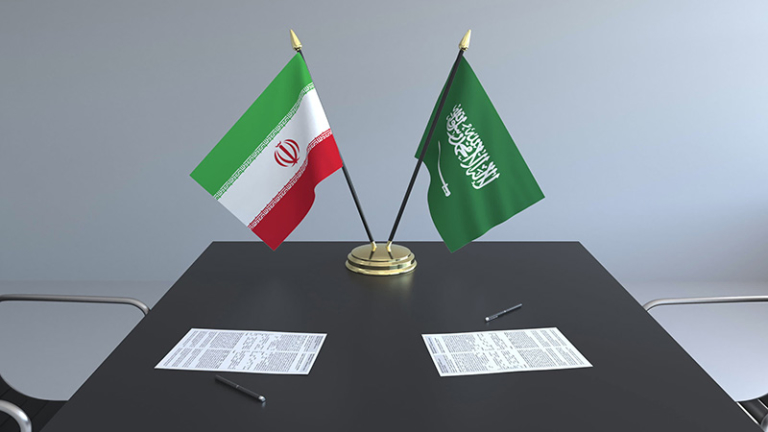Rival nations in the Middle East, Iran and Saudi Arabia, have decided to mend their strained diplomatic ties seven years after they were severed.
Qatar has welcomed the decision by Iran and Saudi Arabia to re-establish diplomatic ties, in a China-brokered deal.
After discussions on Friday in Beijing, a deal was reached, marking the end of a seven-year rift and an agreement for the two nations to re-open their embassies within two months.
In a phone call with Saudi Arabia’s Foreign Minister Faisal bin Farhan bin Abdullah Al Saud on Friday, Qatar’s Prime Minister and Foreign Minister Sheikh Mohammed bin Abdulrahman Al Thani welcomed a trilateral statement from Iran, Saudi Arabia and China on resuming diplomatic relations between Tehran and Riyadh.
He said Doha welcomes the activation of the Security Cooperation Agreement, and the general agreement for cooperation in the fields of economy, trade, investment, technology, science, culture, sports and youth, according to Qatar News Agency.
Sheikh Mohammed expressed Qatar’s eagerness at the steps in hopes that they will increase security and stability in the region, meet the expectations of the people in both countries and pose an advantage to the people residing in the region.
Separately, the prime minister held a phone call with Iran’s Foreign Minister Hossein Amir-Abdollahian on Friday, expressing the same sentiments.
Iran and Saudi Arabia restore ties
In footage aired by Iranian media, China’s senior diplomat Wang Yi offered “whole-hearted congratulations” on the two countries’ “wisdom”.
“Both sides have displayed sincerity,” he said. “China fully supports this agreement.”
The joint statement from Iran and Saudi Arabia, which stated that the two countries had agreed to respect state sovereignty and refrain from interfering in one another’s internal affairs, was confirmed by the Saudi Press Agency.
A security cooperation pact inked in 2001 between Tehran and Riyadh has been activated, according to the statement.
Tehran, Riyadh and Beijing “expressed their keenness to exert all efforts towards enhancing regional and international peace and security,” the statement read.
Ali Shamkhani, Secretary of Iran’s Supreme National Security Council, called the talks in Beijing “clear, transparent, comprehensive and constructive,” as quoted by Iran’s state-run Islamic Republic News Agency.
“Removing misunderstandings and the future-oriented views in relations between Tehran and Riyadh will definitely lead to improving regional stability and security as well as increasing cooperation among Persian Gulf nations and the world of Islam for managing current challenges,” Shamkhani was quoted saying.
According to Wang Yi, China will continue to play a positive role in resolving hotspot issues.
Iraq and Oman, who had previously assisted in mediating the discussions, as well as many other countries in the region, welcomed the rapprochement on Friday with confidence, while the US welcomed it with caution.
White House National Security Council spokesman John Kirby said the administration supported “any effort to de-escalate tensions in the region,” adding that “it really does remain to be seen if Iran is going to meet their obligations.”
United Nations Secretary-General Antonio Guterres thanked China for brokering the deal.
Guterres is ready to help efforts “to ensure durable peace and security in the Gulf region,” his spokesman said.
The regional rivals have long been at odds with one another.
Riyadh severed ties with Tehran after demonstrators broke into the Saudi diplomatic mission in Iran, in 2016. Days prior to the incident, Saudi Arabia had killed a well-known Shia cleric Nimr Al-Nimr, which led to the protests.
A communication portal between Iran and Saudi Arabia saw four rounds of discussions in 2021 and a fifth in April 2022 take place in a bid to restore diplomatic ties and diffuse tensions, particularly regarding their opposing stances on Yemen.
The cautious establishment of those relations came as the United States gradually forgoes the close-knit relation it enjoyed with Riyadh and Abu Dhabi during the former Trump administration.
China’s mediation is seen as a major development in the region by experts.
“By not taking sides, China has emerged as a player that can resolve disputes rather than merely sell weapons,” Dr. Trita Parsi, Executive Vice President of the US think tank Quincy Institute wrote on Twitter.
“While many in Washington will view China’s emerging role as a mediator in the Middle East as a threat, the reality is that a more stable Middle East where the Iranians and Saudis aren’t at each other’s throats also benefits the United States,” he added.
“Washington should avoid a scenario where regional players view America as an entrenched warmaker and China as a flexible peacemaker.”







